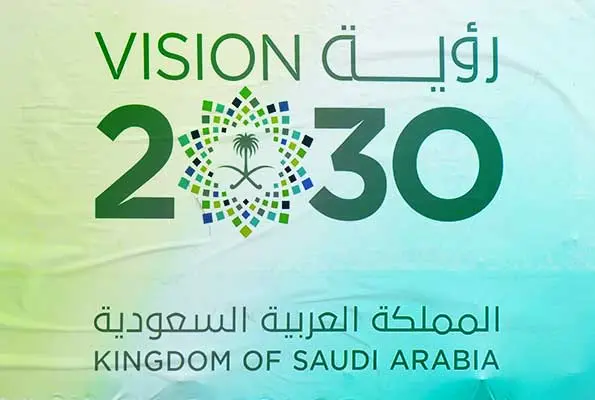A billion-dollar Saudi Public Investment Fund-funded merger between LIV Golf and the Professional Golfers’ Association was announced in 2023. The Kingdom has welcomed soccer superstars like Karim Benzema, Neymar, and Jordan Henderson to the desert to play, enduring the heat and sportswashing accusations. It was a summer of humbling disruption in which traditional institutions may have silently sensed, though they would never admit it, a new world order.
The spending rush goes beyond sports. After investing in movies, Saudi Arabia founded the Red Sea International Film Festival. The country holds WWE pay-per-view events, feeling like late-stage capitalism’s final boss. The Kingdom is also trying to dominate the USD 187 billion video game sector, but not as aggressively as it has with sports.
The minority investments are piling up: Nintendo, Take-Two, EA, and Activision Blizzard. These are key parts of a prosperous industry pies. The monarchy bought smartphone company Scopely for USD 4.9 billion and esports groups ESL and Faceit for USD 1.5 billion through the PIF-funded Savvy Games Group.
Another USD 13 billion is set aside “for the acquisition and development of a leading game publisher” and many more for minority investments. Thus, the video gaming industry is absorbing oil money as fast as Saudi Arabia can extract it.
Where Does It All Lead?
Savvy CEO Brian Ward, a former EA and Activision executive, wants to make the kingdom a gaming “powerhouse,” turning it into a hub of development and esports and possibly making Crown Prince Mohammed bin Salman the world’s most powerful “gamer.”
Ward said this investment was part of the Kingdom’s plan for “economic diversification and social transformation,” a massive effort to maintain the Gulf nation’s economic relevance in a world rapidly moving away from fossil fuels and strengthen its political position at home through bread and circuses.
Mohammed bin Salman seems determined to use his nation’s oil-rich wealth to persuade, and it appears to be working.
In this age of mergers and acquisitions, such massive investment isn’t surprising, but “the appetite with which Savvy and PIF has sucked their teeth into this is unprecedented,” says New York University professor Joost van Dreunen, who wrote a book about video games.
He claimed the business sector neglected video games until digital distribution opened up access. This leads to the current strange situation: a nation-state with a terrible human rights record that executes critics on Twitter, forcing itself into a nerdy and escapist pursuit. Van Dreunen compares the discrepancy to “real estate companies in China that all of a sudden got all these film ambitions.”
“The appetite with which Savvy and PIF have sucked their teeth into this is unprecedented,” Ward mentioned further.
The investment pace may be unusual, but the goal to turn the Kingdom into a video gaming hub and buy a top publisher is not. South Korea invested considerably in internet connectivity in the late 1990s, making it a new hub for video games in Asia and home to many esports stars, “like the Alps for the Tour de France,” van Dreunen said.
China has become a hub for overseas development, particularly in 3D asset production for blockbuster games like Horizon Zero Dawn.
“The ability to plug into the global economy, which required government investment and market momentum, has led to the emergence of these new hubs that didn’t exist,” van Dreunen commented further.
Petro-states have bought major soccer clubs, thus Saudi Arabia should be able to buy a large publisher. Wired described esports as “facing an economic downturn and a dampening of hype,” particularly in the United States, making it a riskier gamble. COVID-19 shut down live, in-person events, and Steve Bornstein, former NFL Network CEO before becoming Blizzard’s esports chair, set great expectations that were not realised.
Mikhail Klimentov, a Washington Post international desk writer and former Launcher gaming section editor, explained that many esports leagues and teams struggle to monetise effectively.
“When you construct infrastructure and hire people, you lose money quickly,” Klimentov said.
Klimentov called Saudi Arabia’s entry “impeccable timing” because the esports bubble is breaking.
“I think Saudi Arabia perceives esports as a distressed asset. Many organisations, infrastructure companies, tournament organisers, and publishers cannot refuse large sums of money. If they had to choose between not existing and receiving money from a Saudi-backed corporation with a ‘nice, western face’ like Brian Ward, I think they’ll take it and recognise that Saudi Arabia has changed. Those promises will be accepted,” he stated further.
According to Simon Chadwick, professor of sport and geopolitical economy at Skema Business School in Paris, investing in video games and other businesses is about “security,” which has two main components. First one is economic in nature, as he claimed that oil and gas account for “40 to 50% of Saudi Arabia’s GDP per annum.” The monarchy is “incredibly exposed” and needs to “undertake a period of industrial diversification.”
The second is political. Religious and political radicalism are concerns for Saudi Arabia’s large youth population (70%) under 35. “Essentially, Mohammed bin Salman is negotiating a new social contract within Saudi Arabia. That social compact says, we will cater for whatever wants that you have,” Chadwick stated further.
“President Xi Jinping visited Riyadh in Saudi Arabia in December 2022 instead of Qatar, where the World Cup was being played. A few weeks later, the monarchy bought a USD 265 million interest in Chinese esports business VSPO, its first venture into the country’s games market and an example of “esports as a form of diplomacy,” Chadwick mentioned further.
In a RealLife column, author Vicky Osterweil called video game enthusiasts “goon squads” who “act as volunteer Pinkertons and scabs.” Soccer is comparable. After Newcastle United was taken over by the Kingdom, fans wore tea towels on their heads as a gesture of affection and as torchbearers for the regime.
These zealous activities will undoubtedly please the Kingdom that wants to improve its global reputation, whether targeting industries with highly mobilised, vocal fandoms are intentional or not.



